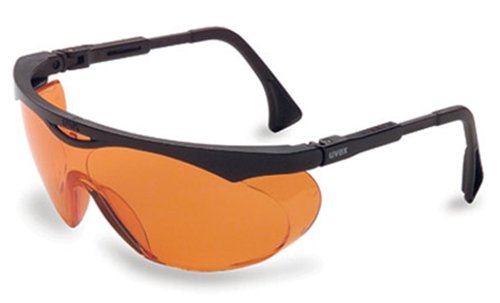Would you sport a pair of orange-tinted glasses in the hours before your bedtime for better sleep?
Researchers have warned about the consequences of exposure to blue light at night, and many Americans are turning to products to allow them to continue some their favorite activities that involve electronics, watching TV, surfing the net, scrolling down Instagram, enjoying a novel on an e-reader and knocking on the competition on video games.
Numerous studies tell us that blue light at night hurts sleep by suppressing the production of melatonin, the hormone that makes you sleepy at the appropriate time and helps to stay asleep.
Sleep experts recommend sticking to dim lighting as you complete your bedtime routine to help you feel drowsy enough to quickly fall asleep on time and sleeping in total darkness for quality snooze without disruptions and tossing and turning.
Recently, Denver resident Matt Nicoletti shared about his experience using orange glasses with The New York Times.
He says even though the brand he wears, Uvex, aren’t that attractive to his girlfriend and can make it more difficult to see greens and blues, they have been making it easier to fall asleep. Additionally, Nicoletti cuts his blue light exposure by using apps that automatically reduces the brightness of the screen as nighttime nears. It may seem like a lot of effort, but may pay off for others.
Published last year in The Journal of Adolescent Health, a Swiss study of 13 teenage boys, showed that when the boys wore orange-tinted glasses in the evenings for 7 days, they felt “significantly more sleepy” than when they wore clear glasses. On average, the boys looked at their screens at least a few hours before going to bed as they were monitored in lab.
Investing in glasses to help you sleep better may be a great decision for you if you need to use electronics close to your bedtime on a regular basis. However, simply banning the use of all your favorite digital devices at least 90 minutes before bed works too!


No comments yet.